We now know the winners of the fourth edition Witold Pilecki International Book Award! - Instytut Pileckiego
We now know the winners of the fourth edition Witold Pilecki International Book Award!
This year’s winners were Grzegorz Hryciuk, Kalina Błażejowska and Christopher Miller. The Awards Committee also announced three honorable mentions during the gala.
The Pilecki Institute and its partner, the Auschwitz-Birkenau State Museum in Oświęcim, selected the winners of the Witold Pilecki International Book Award for the fourth time. It was awarded to authors of the best academic and reportage books published in 2023 on the Polish experience of two totalitarian systems. In addition, in view of the dramatic events unfolding across Poland’s eastern border, texts on Russia’s ongoing aggression against Ukraine since 2014 or illustrating protests in Belarus after the rigged 2020 presidential election competed for a special prize.
The committee qualified 13 titles for the final round of the competition. Hanna Wróblewska, Minister of Culture and National Heritage, who assumed honorary patronage of the event, stressed:
Among the nominated books are texts that examine the extreme experiences of Poles displaced by the Soviet occupiers from the eastern lands of the Second Polish Republic as a result of the Second World War, and the stories of the so-called “DPs” released after the war from concentration camps in Germany and Austria. Of similar note are publications that creatively broach the topics of the Holocaust of Polish Jews, German crimes committed against the people with mental disabilities in occupied Poland, and communist crimes. (…)Thank you to the Pilecki Institute for organizing the award and their conscientiousness in expanding our understanding of the world in which we live.
The winners were announced at the Witold Pilecki Award gala, which took place on 18 October at the Reduta Banku Polskiego in Warsaw.
In the category of “Academic history book” (a monograph or synthesis on the Polish experience of its confrontation with two totalitarian systems in the 20th century), the work by Grzegorz Hryciuk, professor at the University of Wroclaw, was unrivaled. Przesiedleńcy. Wielka epopeja Polaków 1944–1946 takes a close look at the subject of forced resettlement from the Eastern Borderlands to the Western Territories, which began at the end of the
Second World War and affected as many as 800,000 Poles. Grzegorz Hryciuk portrays the drama of people forced to leave their little homeland and set off into the unknown, to a foreign place that, after a journey of many weeks in cattle cars, was to become their new home. The book is an analysis of an important chapter – albeit one often plagued by misconceptions – of Central and Eastern European history, and at the same time a universal story about loss and building one’s life anew.
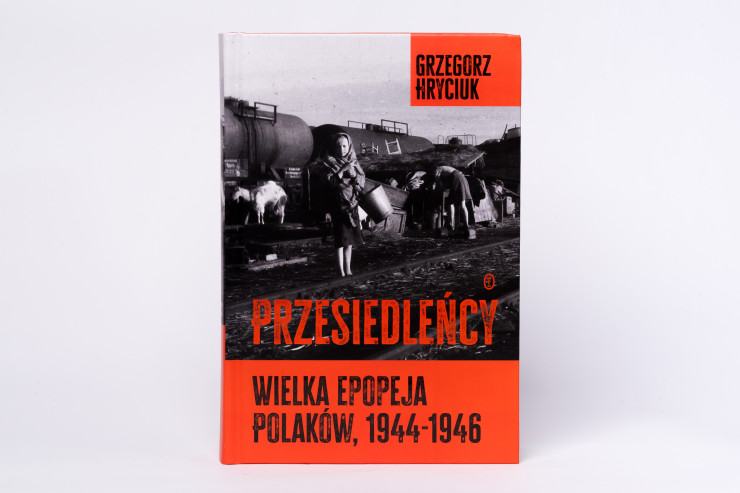
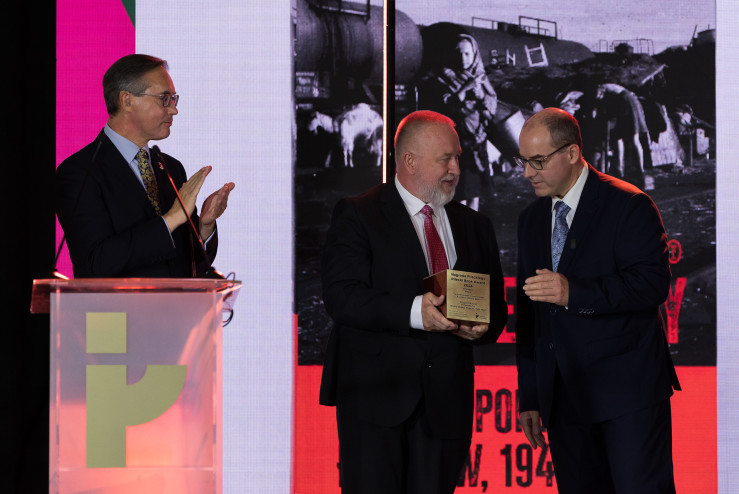
The Awards Committee also presented two honorable mentions in this category to Łukasz Dryblak for his book Szermierze wolności i zakładnicy imperium, and to Katarzyna Nowak, author of Kingdom of Barracks. Polish Displaced Persons in Allied-Occupied Germany and Austria.
Lukasz Dryblak is a historian and employee of the Institute of History of the Polish Academy of Sciences. His work focuses on topics of interest to Polish and Russian émigré circles from the outbreak of the Second World War to the October Thaw. Publicists from both circles focused on an exchange of opinions on the USSR’s policies and relationships with nations in the Soviet sphere of influence. Lukasz Dryblak retraced this dialogue taking into account international and ideological aspects, such as the importance of the Polish
government in exile and the political trends of the time. The author also presented the situation of other Central and Eastern European émigrés, especially Ukrainians, as a reference for the political ideas of both nations.
In her book, Katarzyna Nowak, a researcher affiliated with the Central European University in Vienna, describes the daily life of Poles in refugee camps that were established after the Second World War. In the eyes of the Allies and Polish elites, these places served as a tool for “re-civilization”, but the reality was quite different; refugees shared vermin-filled barracks with people from different backgrounds and social classes. Katarzyna Nowak
examines how the experiences of Polish “DPs” shaped their cultural and national identity, serving simultaneously as a reference point for the situation of victims of modern wars and related migrations.
In the “Historical reportage” category, the committee selected one winner (no honorable mentions were awarded). The winner was Kalina Błażejowska, a journalist and columnist associated with the “Tygodnik Powszechny” weekly magazine. The winning book Bezduszni. Zapomniana zagłada chorych tells the story of the fate of disabled children, mentally ill adults and elderly people requiring round-the-clock care, who were deemed “unworthy of life” by German doctors, the titular “bezduszni”, or “soulless”. The author reveals the tragic fate of the victims of the Nazi “euthanasia” program, introducing the history of three institutions: a child psychiatric clinic in Lubliniec, a psychiatric hospital in Gostynin and a nursing home in Śrem. Kalina Błażejowska’s book uses previously unknown documents and accounts from witnesses and victims’ families to restore the memory of this forgotten extermination.
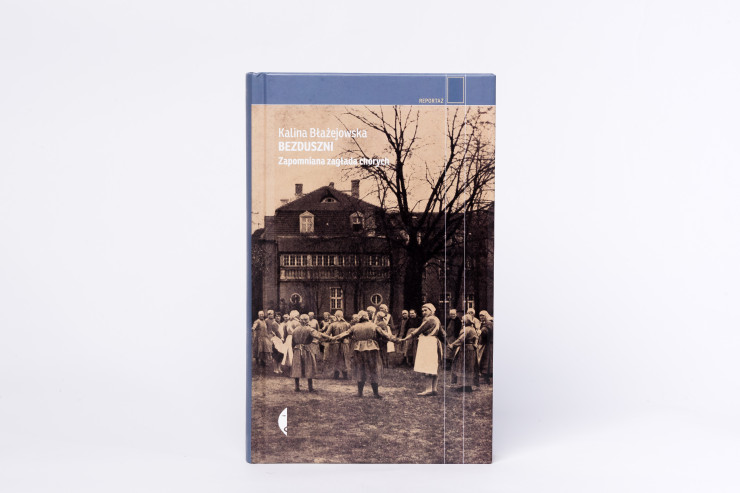
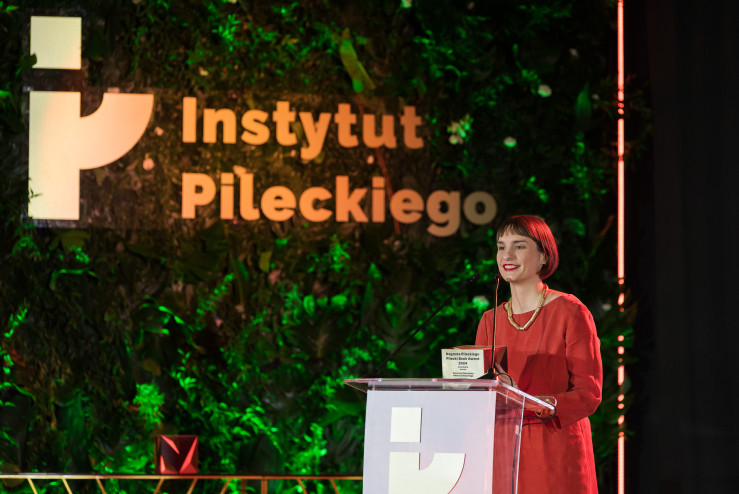
The winner of the “Special Prize” (for works examining Russia’s ongoing aggression against Ukraine since 2014 or the ongoing protests in Belarus since 2020 and related repressions) was Christopher Miller, Financial Times correspondent in Ukraine. He reported on the Euromaidan protests, the annexation of Crimea and the Russian military invasion of Ukraine, among other events, one of the results of which is The War Came To Us: Life and Death in Ukraine. In a book based on personal experiences, dynamic accounts from the frontline and interviews with exceptional characters, the journalist covered the most important events in Ukraine’s recent history, including the genesis of the ongoing armed conflict. Vast, diverse, rebellious and hopeful – such is the picture of Ukraine that emerges from Christopher Miller’s book, whose style is characterized by great insight and sensitivity in equal measure.
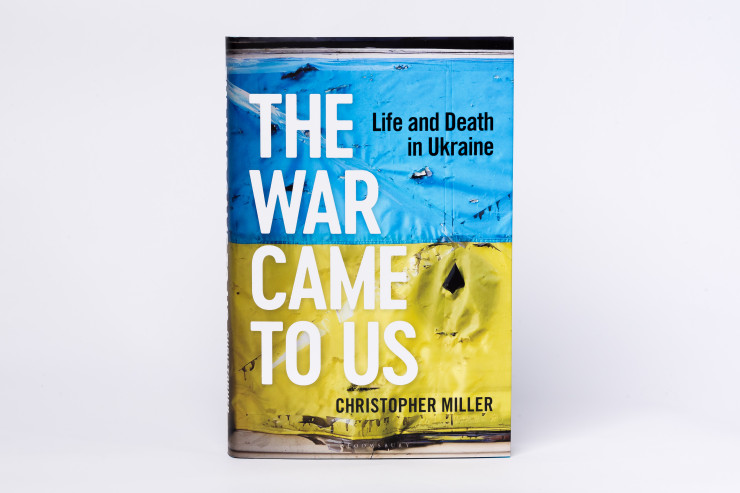
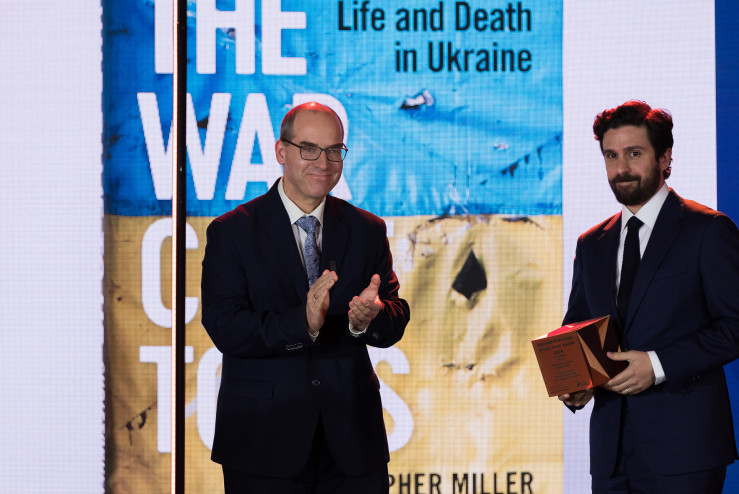
An honorable mention in this category went to Olena Stiazhkina. The novelist and researcher affiliated with the National Academy of Sciences of Ukraine documented several months of the Russian occupation of Donetsk in her book Ukraine, War, Love: A Donetsk Diary, combining personal experiences with the broader context of the events in question. She begins her diary with a reflection on the first pro-Russian demonstrations (2 March 2014), and ends with an entry on the attack by Russian forces on a convoy of Ukrainian
refugees (18 August 2014). Although the events described evoke emotions like anger, outrage and sadness, the author does not shy away from humor. Olena Stiazhkina’s book is not only a moving testimony on the Russian occupation, but also a tribute to her beloved country, city and its people.
Congratulations to all the winners, honorable mentions and finalists of this year’s edition of the Witold Pilecki International Book Award!
See also
- Competition for the position of Adjunct in the Humanities, Department for the study of Nazism and German occupation during the Second World War
News
Competition for the position of Adjunct in the Humanities, Department for the study of Nazism and German occupation during the Second World War
We invite you to participate in the competition for the position of Adjunct in the Humanities, Department for the study of Nazism and German occupation during the Second World War.
- PORTRAITS | Adam Bałdych Quintet
News
PORTRAITS | Adam Bałdych Quintet
“Portraits” is a moving story told through sound, in which jazz meets history and individual fates intertwine with the collective experience.
- Competition for the position of Adjunct in the Humanities
News
Competition for the position of Adjunct in the Humanities
Competition for the position of Adjunct in the Humanities, Department for the study of Nazism and German occupation during the Second World War at the Witold Pilecki Institute of Solidarity and Valor.
- Merry Christmas!
News
Merry Christmas!
On the occasion of Christmas, we wish you all the best and every success in 2026.
- The Lemkin Laboratory – the Pilecki Institute and the Mieroszewski Centre sign cooperation agreement
News
The Lemkin Laboratory – the Pilecki Institute and the Mieroszewski Centre sign cooperation agreement
- 2025 | Michał Bilewicz, „Traumaland. Polacy w cieniu przeszłości"
News
2025 | Michał Bilewicz, „Traumaland. Polacy w cieniu przeszłości"
Michał Bilewicz’s “Traumaland. Polacy w cieniu przeszłości” (Wydawnictwo MANDO/Wydawnictwo WAM) won the Witold Pilecki International Book Award in the “academic history book” category.
- 2025 | Emil Marat „Bratny. Hamlet rozstrzelany"
News
2025 | Emil Marat „Bratny. Hamlet rozstrzelany"
The book “Bratny. Hamlet rozstrzelany” (Wydawnictwo Czarne) won the Witold Pilecki International Book Award in the “historical reportage” category.
- Maksym Eristavi, Russian Colonialism 101. How to Occupy a Neighbor and Get Away with It. An Illustrated Guide
News
Maksym Eristavi, Russian Colonialism 101. How to Occupy a Neighbor and Get Away with It. An Illustrated Guide
Maksym Eristavi’s “Russian Colonialism 101. How to Occupy a Neighbor and Get Away with It. An Illustrated Guide” (IST Publishing) won the the Witold Pilecki International Book Award in the “special prize” category.
- The Witold Pilecki International Book Award: Bilewicz, Marat and Eristavi winners of the Institute’s 5th competition for best history book
News
The Witold Pilecki International Book Award: Bilewicz, Marat and Eristavi winners of the Institute’s 5th competition for best history book
The Witold Pilecki International Book Awards were presented during a ceremony on Thursday 11 December, in the auditorium of the Pilecki Institute.
- Conference summary “Die Haltung der deutschen Minderheiten im besetzten Europa (1939–1945). Forschungsmethoden, soziale Kontexte und Nachkriegsfolgen”
News
Conference summary “Die Haltung der deutschen Minderheiten im besetzten Europa (1939–1945). Forschungsmethoden, soziale Kontexte und Nachkriegsfolgen”
On 20–21 November 2025, an international academic conference was held in Berlin and addressed issues of the attitudes of the German population during the occupation and their postwar fate.
- Results of the Competition for the position of Manager of the Extraneous Branch of the Witold Pilecki Institute of Solidarity and Valor in Berlin
News
Results of the Competition for the position of Manager of the Extraneous Branch of the Witold Pilecki Institute of Solidarity and Valor in Berlin
Warsaw, 20 November 2025 | Announcement of the results of the Competition for the position of Manager of the Extraneous Branch of the Witold Pilecki Institute of Solidarity and Valor in Berlin.
- Nominations for the Witold Pilecki International Book Award 2025 (fifth edition)
News
Nominations for the Witold Pilecki International Book Award 2025 (fifth edition)
We know the authors nominated for the fifth edition of the Witold Pilecki International Book Award! Out of 60 submissions, the Awards Committee has selected 12 publications to compete in three categories.